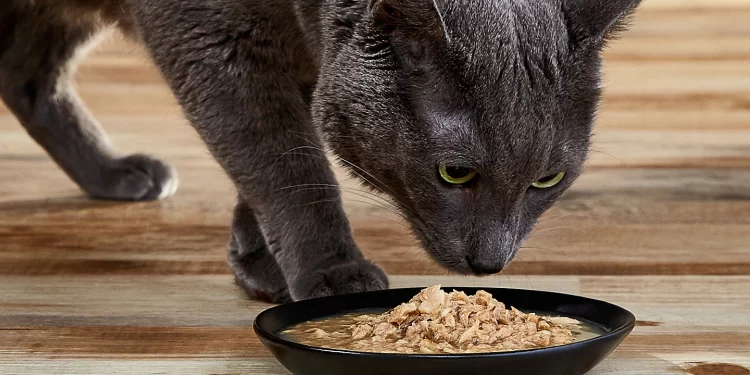Looking for a low-protein cat food option for your feline companion? A low-protein diet can provide many benefits to cats, as well as potential health benefits.
We also discuss the types of low-protein cat food available, as well as how to transition your cat to one. The best low-protein cat food for your cat should be determined by a veterinarian.
Table of Contents
Introduction:
The term low protein cat food refers to pet food that contains a lower level of protein than typical cat food, resulting in a lower level of nutritional value for your cat. Nutrient protein is essential for the health and well-being of cats.
Even though some cats may require a low-protein diet for a variety of reasons, it is nevertheless important to note that some cats may require a diet that is low in protein
What is cat Food?
Cat food is a pet food that is specifically designed for cats. This food supports cats’ overall health and well-being by providing the required nutrients, vitamins, and minerals.
Top 4 Benefits of Low-Protein Cat Food:
A cat food with a low protein content may offer a variety of benefits to the cat, depending on the cat’s specific nutritional needs. These include:
Managing kidney disease:
There is a possibility that cats with kidney disease may have difficulty processing and removing excess protein from their bodies, which may trigger additional kidney damage.
A low-protein diet may help reduce the workload on the kidneys and thus slow down the progression of the disease.
Weight management:
The low-protein diet may be beneficial to overweight or obese cats to reduce their calorie intake and help them lose weight.
Reducing the risk of certain types of cancer:
There has been a link between high-protein diets and an increased risk of bladder cancer in cats. A low-protein diet may help reduce this risk.
Improving the overall health and well-being of older cats:
The ability of cats to digest and utilize protein may decrease as they age. However, a low-protein diet may be of assistance in improving the health and well-being of older cats.
Types of Low Protein Cat Food Available”
Many low-protein cat food options are available, including wet and dry formulas. Among the most common are:
Prescription low-protein cat food:
They are often only available through veterinarians or with prescriptions and are particularly formulated for cats with kidney disease or other medical conditions that require a low-protein diet.
Weight management low protein cat food:
The purpose of these cat foods is to help cats lose weight by reducing their protein and calorie intake. Additionally, they may contain additional fiber and low protein they feel full and satisfied.
Senior low-protein cat food:
A portion of senior low-protein cat food is specifically formulated to meet the nutritional needs of older cats without being excessively harsh on their digestive systems. As cats age, their bodies may have a diminished ability to process and utilize the protein.
Low-protein wet cat food:
A variety of flavors are available in low-protein wet cat food, which can be a good option for cats who prefer wet food and require more moisture than dry food.
Wet cat food is typically higher in moisture content than dry food, which can be beneficial for cats with kidney disease or other health conditions.
Low-protein dry cat food:
Cats prefer dry cat food since it is convenient and easy to store, and low-protein options are available.
Some low-prolow-proteint foods have been formulated for specific health needs, such as weight management or kidney disease, while others are designed for general health.
Why Choose a Low-Protein Diet for Your Cat?
Cats may need to follow a low-protein diet for a variety of reasons. Kidney disease is one common cause of this.
Cats suffering from kidney disease may have difficulty processing and eliminating excess protein, which can lead to further kidney damage.
By reducing the workload on the kidneys and slowing the progression of the disease, a low-protein diet can aid in reducing the severity of the condition.
Low protein diets are also recommended for cats who are overweight or obese. This is because low-protein diets allow cats to lose weight by reducing their intake of calories.
FAQ
Can low-protein cat food be fed to cats of all ages?
If you are planning to make any changes to your cat’s diet, you should consult with a veterinarian first before consuming low-protein cat food. In comparison to adult and senior cats, kittens and growing cats require different nutritional requirements. A low-protein diet may be appropriate for all stages of a cat’s life.
Conclusion:
The use of low-protein cat food can be beneficial for cats suffering from certain health conditions or trying to lose weight.
In some cases, cats may require a low-protein diet to support their overall health and well-being, even though protein is an essential nutrient.
It is important to consult with your veterinarian before making any changes to the diet of your cat, as there are various options available for low-protein cat food, including wet and dry formulas.
Low protein diets can help improve the quality of life of your feline companion with careful planning and the right nutrition.





